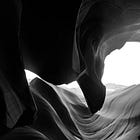A Weekend in McCall - The Truth About the Wilderness and Our Role in Its Future
A meditation from 48 hours documenting environmental issues in Idaho
On Thursday evening, I traveled across two states to arrive in the lakeside town of McCall, Idaho, amidst a growing snowstorm.
Despite the inclement weather, the small town was bustling with life. A handful of people were headed up the local ski hill, the brewery was packed, and a local high school hockey game seemed to be the talk of the town.
I sat down at a bar top in the local brewery with my filmmaking partner for a quick dinner where we caught up on the plans for the weekend. We were here on a quick trip to interview a few locals for a documentary film we are currently developing. For a few hours, we went over our ideas for the production plan, discussed our travels, and traded thoughts on this new place.
As the night cleared out, we decided it was time to head out and found a spot on the map south of town to camp for the night. After we meandered our way through the icy streets and blowing snow towards the river, a trek that turned into a few hours of hard labor shoveling snow out from under one of our cars, we finally located a good, or good enough, place to sleep for the evening.
As it turns out, sleeping in your car in the middle of a snowstorm isn’t the best experience for getting a well-rounded 8 hours of shuteye. Especially when you are no longer the spry and less achy 20-year-old you once were.
Nevertheless, after a pretty sleepless night, we awoke to practically white-out conditions and headed into town to prepare for our first interview of the weekend.
On the drive into town, through the bleak white snowstorm, the landscapes of Central Idaho occasionally revealed themselves to me.
These beloved and long-revered mountains are an iconic part of the West. For centuries, people have been entranced by their rivers, wandered through their wilderness, and been inspired by their calling for adventure. In many ways, Idaho is the symbol of the Mountain West, a rugged and wild landscape characterized by beloved animals, untreaded forests, and iconic rivers.
I’ve always been fascinated with places like this in our world, especially in the American West. These beautiful and divine portions of the land where our species tends to congregate have become altars for our fascination with the mountains.
Even before this land had any notion of the word “America,” these lands inspired the stories and legends passed down generation by generation by the indigenous peoples of this continent.
They have a history that is intertwined with our own, and these places have witnessed the evolution of human society, thought, and culture for thousands of years.
I’ve spent a lot of years documenting stories and discussing issues in these types of places around the world. In these conversations, I’ve been able to witness their beauty through anothers eyes. Stories of growing up on the land, spending countless days in the backcountry, or fighting for its protection have emphasized people’s passion.
The one caveat, though, has always been that the beauty of a place is always contrasted by an understanding of the truth.
The truth is that our entrancement with natural places is tempered by an understanding of their place in our culture and society. Even here, in McCall, my growing fascination for this new and serene landscape is contrasted by the purpose of my expedition here - to understand the role our society plays in deciding the fate of these ecosystems.
Across our planet, there are very few places that remain untouched by the mechanisms of the modern world. The deep parts of the Amazon rainforest are influenced by decisions made in congressional chambers in Brasilia, the wilderness of Alaska is influenced by conversations held in boardrooms in Silicon Valley, and the open ocean is impacted by the actions of nations on every coastline it touches.
Seeing a place for only its beauty is wonderful, but it’s also naive. It denies the power these landscapes hold on our world, persisting across generations, cultures, and time. To respect a place, you must understand the adversity it has faced, the challenges it has overcome, and the role it plays in our world.
This notion of seeing the whole picture is one of the hardest things to do because it’s not always cheerful and heartwarming.
Landscapes were formed by the divine and timeless power of nature, but they are not immune to the influence of humankind. Even deities can be touched by the doings of their creations.
Even in this place, where the lands seem to be overrun by the overwhelming beauty of the wilderness and the love of nature within its people, there are still machinations of society at work just beneath the surface. Deep in the heart of these mountains, the trees and rivers are just as much influenced by the communities a few towns over as they are by decisions made in Boise or Washington, D.C.
Wandering from interview to interview with locals who are interconnected with the shaping of this future reality, I was reminded that this influence by humanity can be both positive and negative. There isn’t one future for this place; instead, there are myriad of opportunities that will dictate a new truth.
This ongoing internal discussion reminded me of a common conversation held in the world of conservation.
Should we view the planet as our garden or as a vast and untouched wilderness? The central idea to the question is a matter of psychological phenomenon - are we more likely to protect our garden or a place we deem to be wild?
There is no necessarily right answer to the question, but I think the fatal flaw in this discussion is that it poses that there are places on our Earth that are truly wild and uninfluenced by humankind. The proposition that humanity acts separately from the natural world, I believe, is false.
Our society is an instrument in an ecological orchestra, and the notes we play will ultimately change the landscape of the symphony. It’s just up to us whether we want to make music.
In Central Idaho, the influence we stand to have is now being debated because these mountains are facing an altercation with the human world that will decide their fate for decades to come.
I’ll be discussing this documentary film project in more detail in the coming weeks. For now, you can check out the film’s website here.
The Naturalists community chat is now open. As more individuals join the community, we will start having more discussions in the chat. I’m still learning how this option works on Substack, but for now, we can start by having conversations about the monthly challenge or topics posted each week. In addition, in the upcoming weeks, I’ll be adding more paid subscriber posts and benefits, including access to an upcoming event. To get access to the Naturalists’ community, sign up for the paid subscription below.
Thanks for being here, friends. See you in the next one.
With Love,
Keegan






